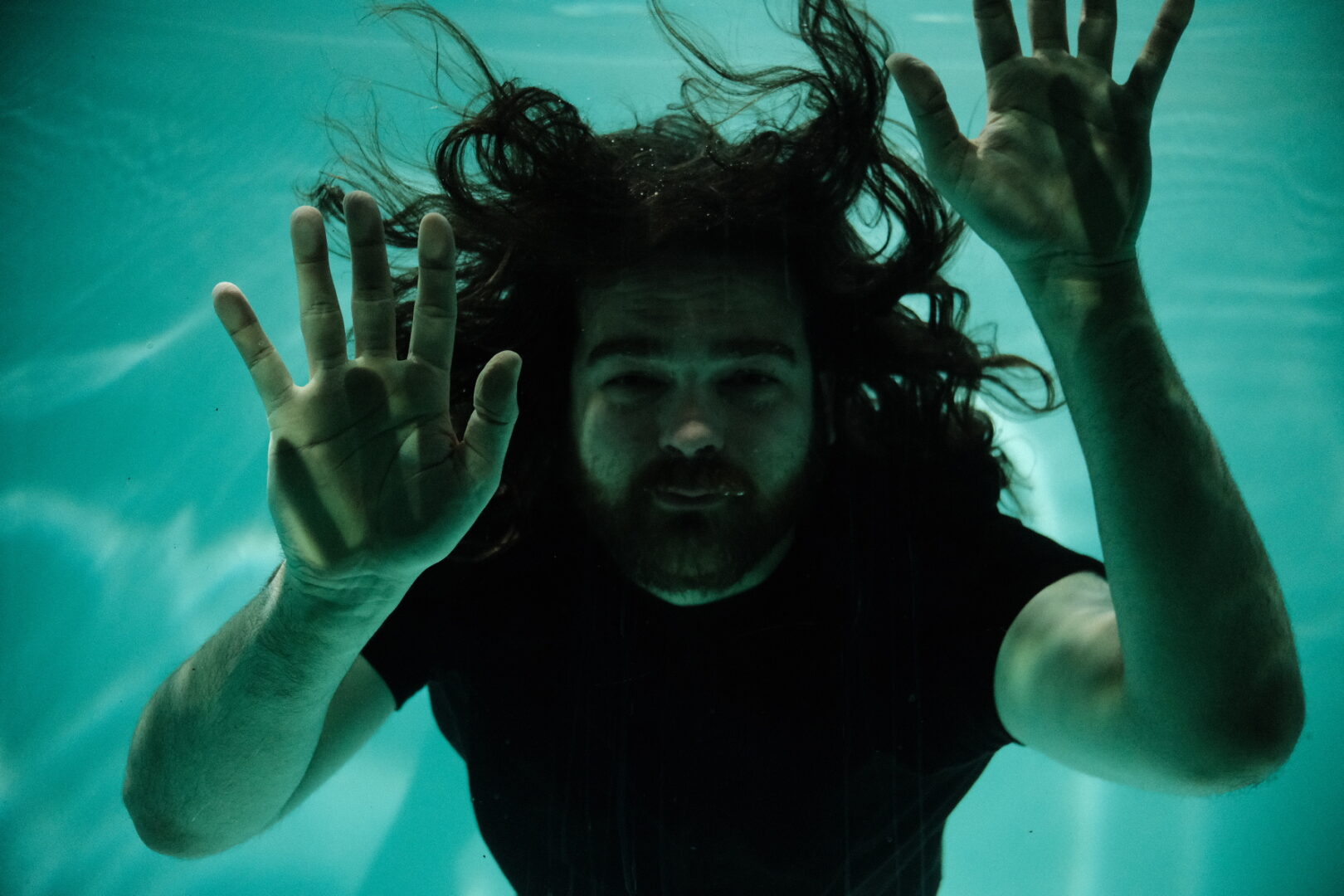We caught up with the brilliant and insightful Justin Stirewalt a few weeks ago and have shared our conversation below.
Justin, we’re thrilled to have you on our platform and we think there is so much folks can learn from you and your story. Something that matters deeply to us is living a life and leading a career filled with purpose and so let’s start by chatting about how you found your purpose.
Purpose, for me, has always been one of those elusive things that guidance counselors, pastors, and parents would hand-wave away as being something you simply stumbled into one day after being hit by some cosmic lightning. When I was a kid, it felt mysterious; when I was a teenager trying to figure out where I’d apply for colleges, it felt frustrating; and when I was adult, it felt mythological.
My path ended up being one of the most non-linear ones possible; I often joke with friends or when I’m being forced into an ice breaker that I feel like I’ve lived nine lives already because of how wandering my path was. I didn’t know anyone that didn’t go to college or university right out of high school. I was the only one at the time and I felt like such an immense failure because of it. When thinking about college my final two years of high school, I’d feel such an immense amount of pressure in my chest that I simply could not shake. There was a program at one of the local community colleges where they let you take college courses for free for both high school and college credit, so I’d done quite a bit there and felt extremely ambivalent about the whole college experience. “If this is all it is, why would anyone want to go into crippling debt just for this?” I remember wondering (foreshadowing). I had recently begun working in theatre (both as an actor and as a technician), but my parents said they couldn’t afford for me to get an arts degree, and there was nothing else that really interested me. In their defense, I likely did not fight as hard as I did in my memory, but it remained in the back of my mind.
Also in the back of my mind, I began developing this mental/emotional restless leg (?) (lovingly referred to as The Itch, hereafter) that told me I could not stay in the same place as when I graduated high school, I had to do SOMETHING. Nearly a year after I graduated, I was working three part time jobs and knew I had to leave. So, I did what any sensible, level-headed person might do, and I enlisted in the military. If nothing else, I’d make the same amount I’d been making working three jobs, and maybe I’d get to travel a little, and maybe they’d at least pay for college when it was all said and done, if I survived that long.
Joining the military was probably the single best and worst thing I’ve ever done in my life.
This is only shocking to hear until you get to know me and it marks one of the major “lives” that I’ve lived. I feel like I was born and died in the military. Basic training felt like an eternity when, in reality, it was maybe twelve or thirteen weeks. I remember feeling like a speck of dust inside a vortex of hopelessness. I didn’t know it at the time, but it changed the very foundation of who I was because, for the first time, I didn’t know what I wanted, but I knew what I didn’t want. This feeling was so visceral it awakened The Itch. I brushed it off at the time as just not enjoying something that was physically, emotionally and mentally challenging, but it wasn’t that. After basic training, I went to language school where I spent 16 months learning a foreign language.
For nine hours a day (sometimes more) for five days a week, for sixteen months, I learned this foreign language. It was exhausting. I struggled. It didn’t come as naturally for me as it did for some of my classmates. But I persisted. And, at the end of the sixteen months and passing all of my courses… I failed my certification exam. I was crushed and felt humiliated (again). It’s the equivalent of passing law school and failing the bar, only I wasn’t permitted to retake the test. So much for that purpose.
I was reclassed into a different job, and this time, I was moderately successful and felt ok about it. I received my first official duty assignment—right to Omaha, Nebraska. Sorry fellow Corn Huskers, it was not my favorite.
I struggled in my assignment. Not from the actual work, but from the culture. I worked a rotating shift for nearly two years, developed a sleeping disorder (that I still have 10 years later!), and was selected for medical retirement because of all the ways the military was messing me up physically and mentally. Another item in the “things I don’t want” column.
I was officially retired at the ripe old age of 23, and have the letter signed by President Obama to prove it. Death and rebirth. Another life. Back to square one.
A year after I separated from the military, I received an email offering me a job in Washington, D.C. doing the same job I’d done in the military, but for our sister office in the capital and no more mandated 6am physical training.
There was a glimmer of hope as I worked and became a Subject Matter Expert in my field. I got promoted, started writing operating procedure manuals, briefed and advised members of Congress on national policy regarding my field of expertise. But The Itch came back, persistent as ever, sitting (un)comfortably where my skull meets my spinal column. I still struggled to admit it, but I knew that this wasn’t where I wanted to be.
In the midst of working in D.C., something else happened: my father passed away.
My father and I had a complicated relationship, to put it simply, but he was only 55 when he passed. The last conversation we had was about the things he was looking forward to doing after he retired, all the dreams he’d had. And then, one day—they didn’t matter anymore. It was too late.
The week after his funeral, I began researching undergraduate programs and schools. I typed up probably twenty or so programs, their course loads and class offerings, then removed all school names and branding, printed them out, shuffled the papers and picked my top three based on classes and course structure alone. They ended up being all in Los Angeles.
I booked a flight to LA and toured two of them. I first toured Chapman University, took the campus tour, walked around on my own for a while. I toured the newly constructed (at the time) film annex. I sat at the fountain in the piazza and tried to daydream about going there, what it would feel like.
As I sat there on a sunny September afternoon, I could feel The Itch regressing. I didn’t care that it was the most competitive program in all of the programs Chapman had to offer. I didn’t care that they only selected 12-14 people every year. I didn’t care that it was completely across the country. I knew I had to be there. I toured my second school and felt the exact opposite of that feeling. “I don’t want this.” I didn’t make the third tour because I drove back down to Chapman to walk around again.
I applied to Chapman and my second-choice school. I got called in to audition on the very last audition day for the year. Because of where my last name was, I was the second to last auditioner. I felt so out of place among the hopeful high school seniors with gleaming headshots and resumes. I struggled being a tree in the warmup improv game. But I was hungry, and I was determined because I had to do this. I had to be in this program. I did my best to become a tree and pretend I was Brad Pitt in Ocean’s Eleven and walk around the space like my life depended on it.
And I was accepted. Death and rebirth. Another life. Another reset. But this one felt different. This one felt more like I may have had a little to do with it. For the first time, my rebirth landed me way out in left field, but I at least felt like I was in the right ballpark.
From there, life has been this constant cycle, moving like tides, but it has been worth every moment of it. For me, purpose wasn’t something that struck me like lighting, it’s something I’ve had to find, slowly, over time, and let it wash over me. Sometimes when I’m in the thick of it, I have to quiet my soul and intentionally listen for it again. I’ve stopped questioning it, at least for now, because I’ve found the thing in the universe that resonates with me on the same frequency as the other cosmic dust from which I’m made.
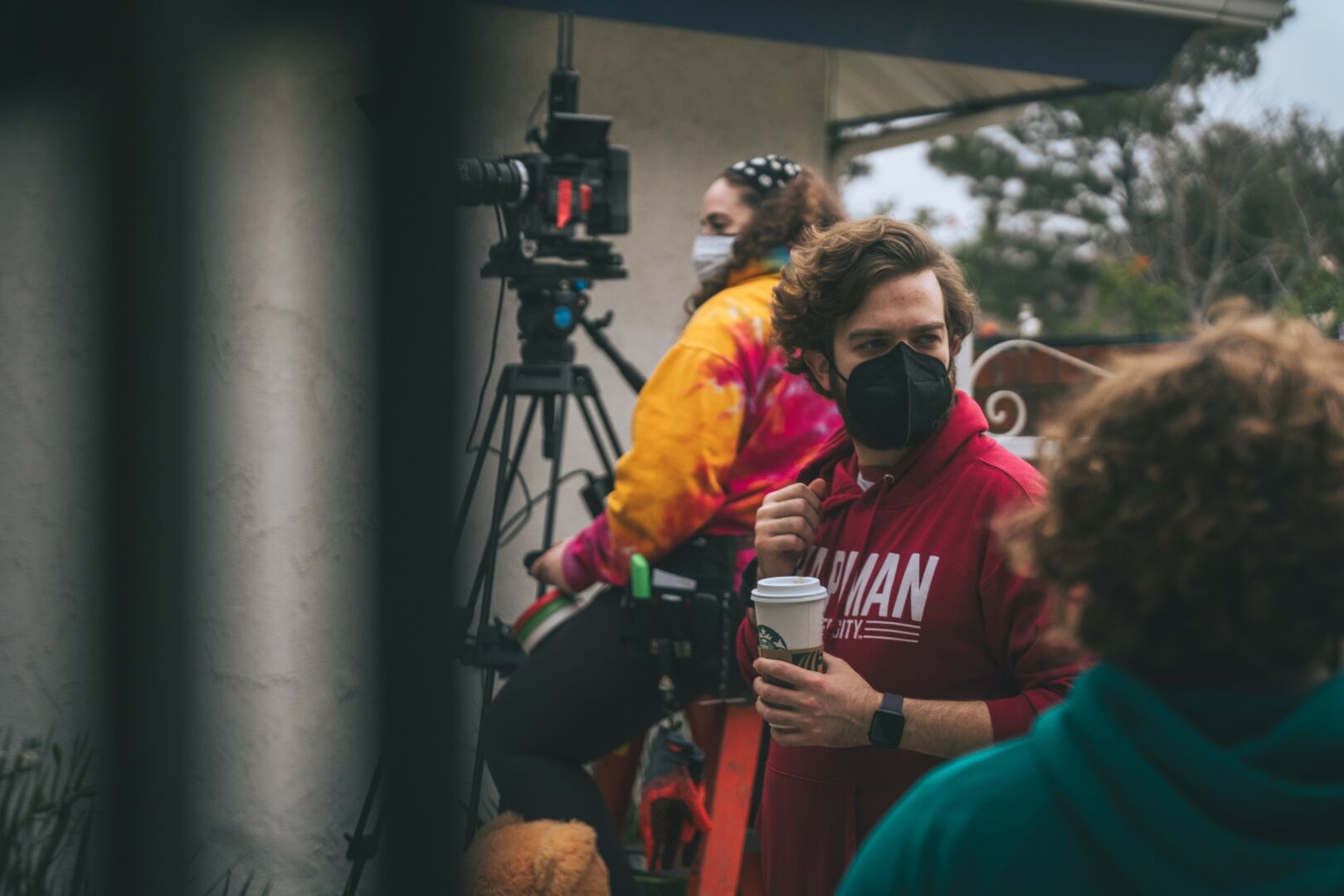
Thanks, so before we move on maybe you can share a bit more about yourself?
This actually kind of continues on from the first question surrounding purpose.
I am an enigma, and not in a quirky way. My degrees are primarily rooted in performance, but each one required a fair level of diversity in subject matter. I not only went to the undergraduate program of my dreams; I also just graduated from the graduate school program of my dreams. Another highly competitive program, but one that complimented my existing knowledge base well. In 2023, I was accepted into the inaugural class of the “Classical Acting: Performance and Practice Masters of Fine Arts” program at the London Academy of Music and Dramatic Art. In between those two degree-granting programs, I studied (and continue to work on) my diploma from the Theatrical Intimacy Educators, studying intimacy direction, coordination, and choreography.
As creatives, we’re often told that we must be multi-hyphenate to “survive” being out in the industry. I’m slowly learning to take the implied roadmap with a grain of salt, but I think there’s a really important distinction to me, for me. I’m not a multi-hyphenate simply to survive, I’m a multi-hyphenate because I enjoy pursuing things that make me feel fulfilled.
Earlier this year, I finally started my production company after doing behind the camera work for years. I started out working the sound board for local theatres when I was 14, acting when I was 16, and I started shooting my own content when I was 17. Don’t ask to see it, it’s not great and was shot on a Kodak point and shoot camera I bought for $150. But it taught me the value of a production schedule, how to see my projects through from script draft to final edit, and how to avoid project creep. I worked on sets throughout undergrad and grad school and functioned in roles from directing to cinematography to being a production assistant. I find this range extremely helpful when it comes to understanding delegation and collaboration absolutely vital in being a compassionate collaborator. I look at learning every crew member’s position as an act of kindness, as well as one of necessity.
I do still act, of course, since I spent the time getting two degrees in it. (Might as well, right?) I will be performing in China for a project later this month, and I recently booked a touring show in Italy that starts soon after I get back from China. Somewhere in there, I’ll also be looking for representation if you happen to know anyone. I also recently helped tech design my first off-West End show here in London, filmed over a dozen projects over the past year or so, and am working on the script for my first feature film.
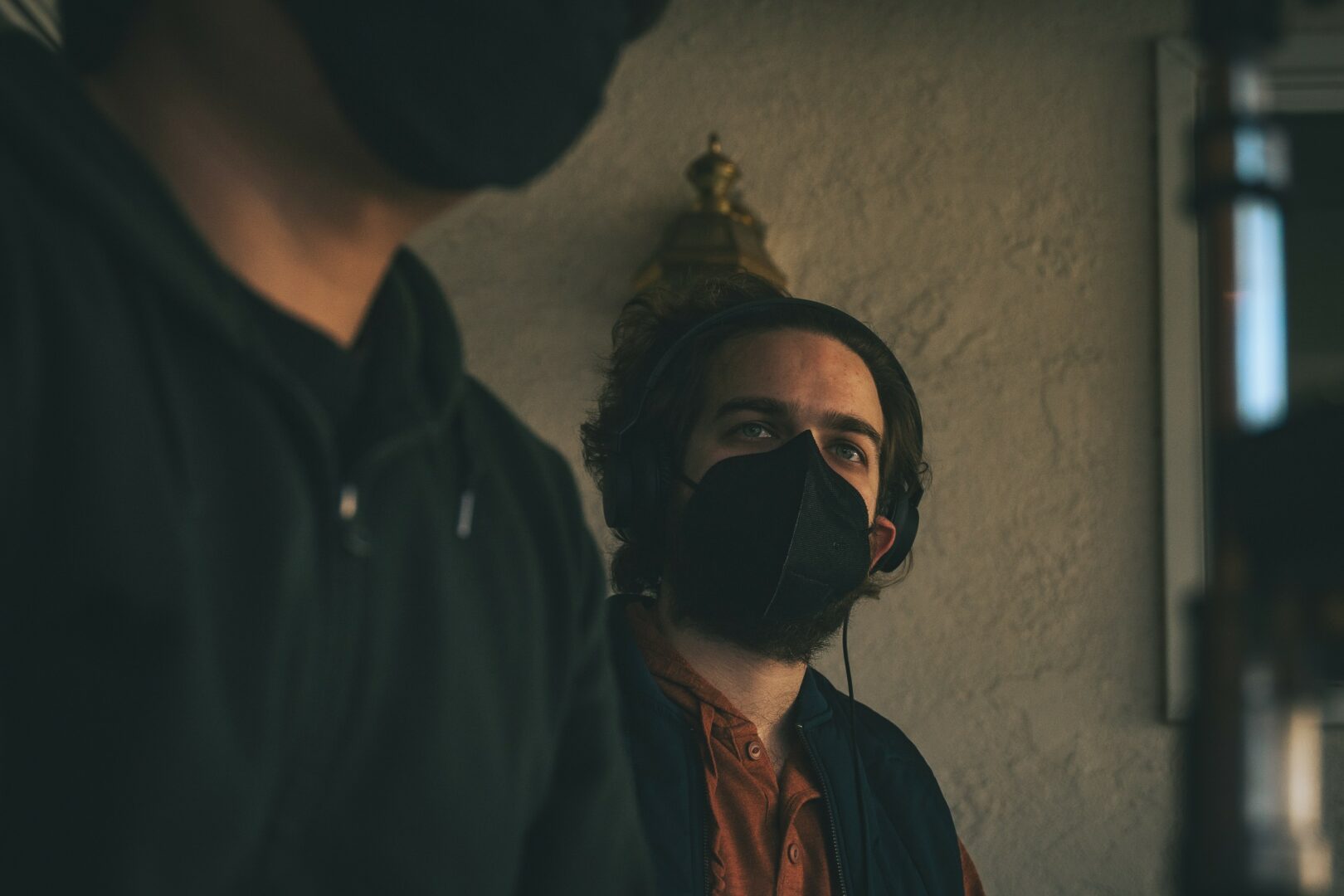
If you had to pick three qualities that are most important to develop, which three would you say matter most?
I think for me, the three qualities that have helped me most came in the form of aphorisms I’ve stumbled across throughout my “lives.”
1.) Pragmatism. “Dreams without goals are just dreams.” I think as children there was this idea we were sold that we can be anything we want to be, but the importance of also showing up and doing the work was vastly understated. There are niche cases of people being discovered or having an extremely fortunate breakout moment, but more oft than not, this isn’t the case. That’s not to say we can’t dream big, however, but that dreams need structure and pragmatism. Denzel Washington (who I believe took it from an acting teacher he had) said that “Dreams without goals are just dreams, and ultimately, they fuel disappointment. On the road to achieving your dreams, you must apply discipline and consistency. Because without commitment, you’ll never start, and without consistency, you’ll never finish.” Dream big but be willing to meet the universe halfway. Believe those dreams will happen and ask yourself “What do I need to do to make these dreams my most likely outcome?” Get curious, do research, find other people that have achieved the thing that you’re aiming for and ask them questions, sit with yourself and be totally honest with yourself if you’re willing to pay what it could cost to achieve this thing that sets a fire inside. Find other people that approach difficult things in a similar way. People willing to tell you, “OK, it’ll be challenging to make this thing you want to make, but what would a gameplan for that look like? What are the steps we need to take?” Be honest with yourself, ask the right questions, don’t get lost in the dream itself, and you’re well on your way.
2.) Tenacity. “Our doubts are traitors and make us lose the good we oft might win by fearing to attempt.” This line is what single-handedly made me fall in love with Shakespeare. From his rightfully debated show Measure for Measure, to me this represents the other side of the last quote. There is no bigger critic of myself and my art than myself, and this is true of every artist I’ve ever met or with whom I’ve worked, but you cannot let it stop you. Martha Graham’s “Keep the channel open” advice also comes to mind here. It’s not our job to judge the value or worthwhileness of our own endeavors. I think in our digital age, we can forget that the process itself is just as much an art form as the finished product can be. There are things I’ve made that have only been seen by a handful of people but each thing I have created has taught me lessons I carry with me that will echo throughout the rest of my artistry. Don’t let the fear of failure stop you from ever trying in the first place.
3.) Resilience. I’ll be transparent, this is a quality I think is both extremely important and also one with which I readily struggle. It’s not enough to simply dream, or to plan, or to attempt, you must keep doing so over and over, time and again. There are times when I get lost in the soup of it all and wonder if I’m in the right place or if I took a wrong turn somewhere simply because of what its cost to get me this far. But all it takes is a look back, a look through the lives I’ve lived like artifacts on a shelf to remind me that I tried my back up plan first, I tried the safety net before even taking the leap. And I know that this is where I’m meant to be, no matter how challenging it might be in the moment, I can’t lose sight of how far I’ve come. I may need to take a step away, to take a break for a week or month or year, but I can’t be afraid to recenter myself and pay homage to all the work I’ve put in. There may be times when I feel like giving up, or like I may not be where I feel like I should be, but I take a step back, regain my perspective, look at everything I’ve given to be where I am and try to take a deep breath and give myself permission to sit under the shade of a tree whose acorn a younger me planted all those years ago.
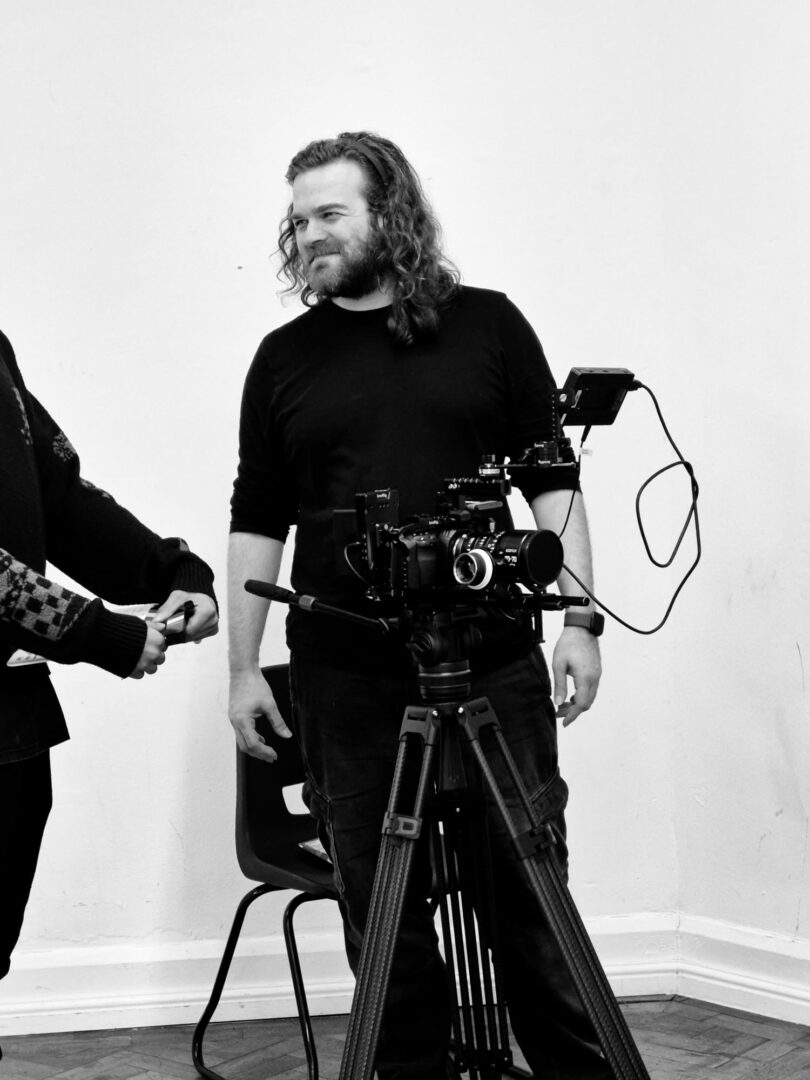
We’ve all got limited resources, time, energy, focus etc – so if you had to choose between going all in on your strengths or working on areas where you aren’t as strong, what would you choose?
I am all about learning how things work and why. From the time I was a young lad spending afternoons with my grandfather in his VHS and cassette duplication business, I loved taking things apart and learning how they work. I think one of the major ways I feel seen and appreciated is when someone is able to acknowledge how challenging my work is, regardless of which hat I’m wearing. And it’s one of the ways I try to show other creatives appreciation, too: walking a mile in their shoes.
I think all directors should take an acting class, I think all cinematographers should write, I think all gaffers should operate a boom, I think all actors should have to hang lights, if only for one project. You don’t truly know pain until you’ve been operating a boom for 12 hours and an actor can’t hit their mark. As an actor, your talent may get you hired for your first gig, but knowing how to speak the crew’s language will get you rehired time and again. If you’re a considerate collaborator, people will want to work with you.
I think this goes both ways, though. I’ve crewed on several projects where the crew (and even directors) were afraid of speaking to talent because they were just weird hybrid theatre kids and those are scary. We’re all human, we all are wanting to be seen as competent creatives, we should all be on the same team. Part of that is walking a mile in each other’s shoes. Some of my most pivotal classes in undergrad, as an actor, were my editing classes. I would sit in the edit suites, watch the dailies from a project, and see exactly how unusable a good portion of the footage was because the actor landed in a different spot in every take or didn’t consistently pick up their props with the same hand or were looking in the wrong place at the wrong time. I gained such a hyperawareness of how important consistency was that I’d not had by simply being an actor.
You gain such an appreciation for the diversity needed to make art by sitting where they sit and seeing the different obstacles they face. I think this is true for any team-centered field: if you don’t have an idea of what each team member brings, how can you operate effectively?
It’s not to say you must master all departments in order to be effective, but if you develop an appreciation for what each member on the team does, you’ll help contribute towards a team that can do great things.
Contact Info:
- Website: https://www.jstirewalt.com
- Instagram: @jcstirewalt
- Other: www.gemni.productions
@gemni.prod
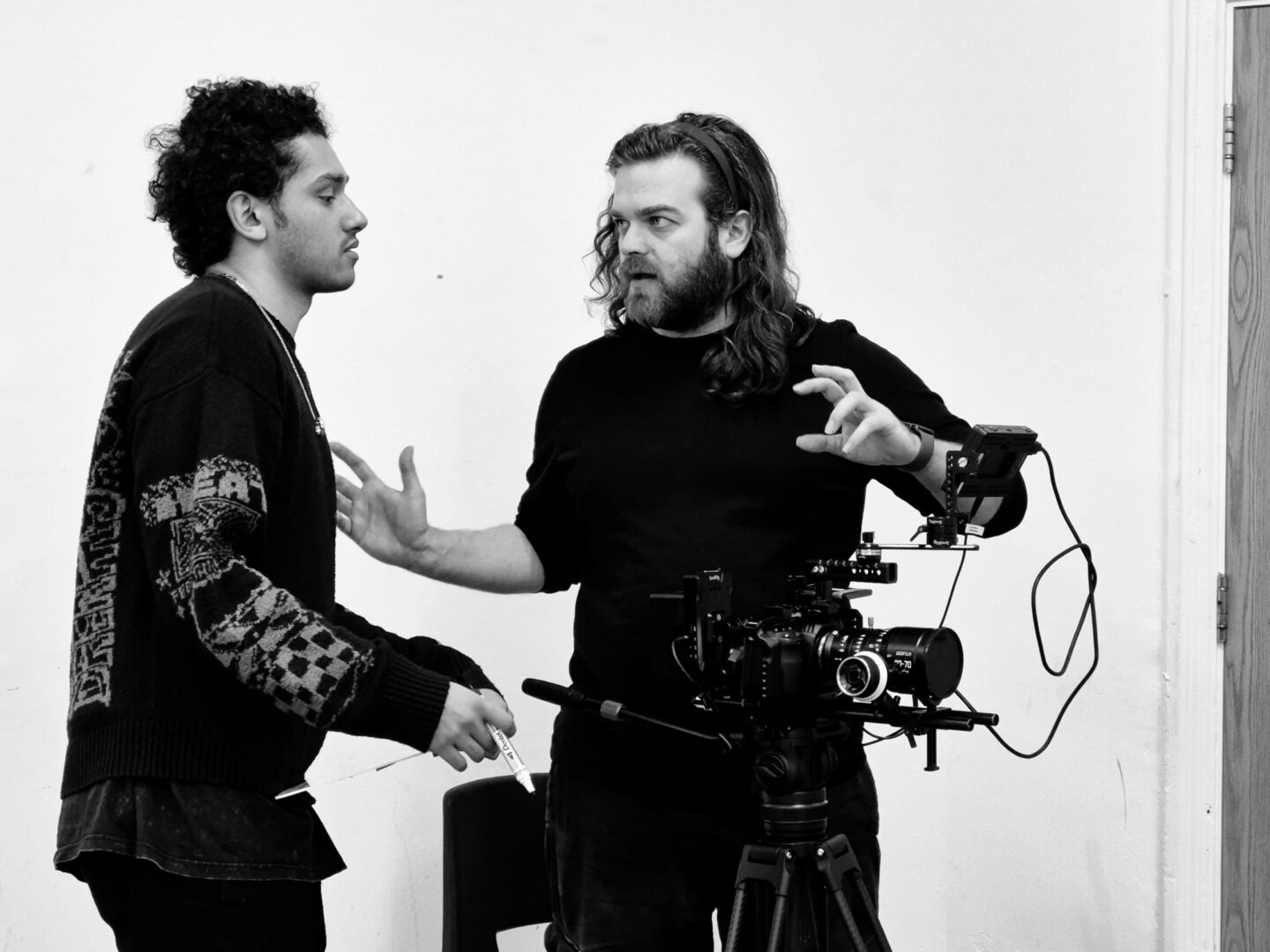
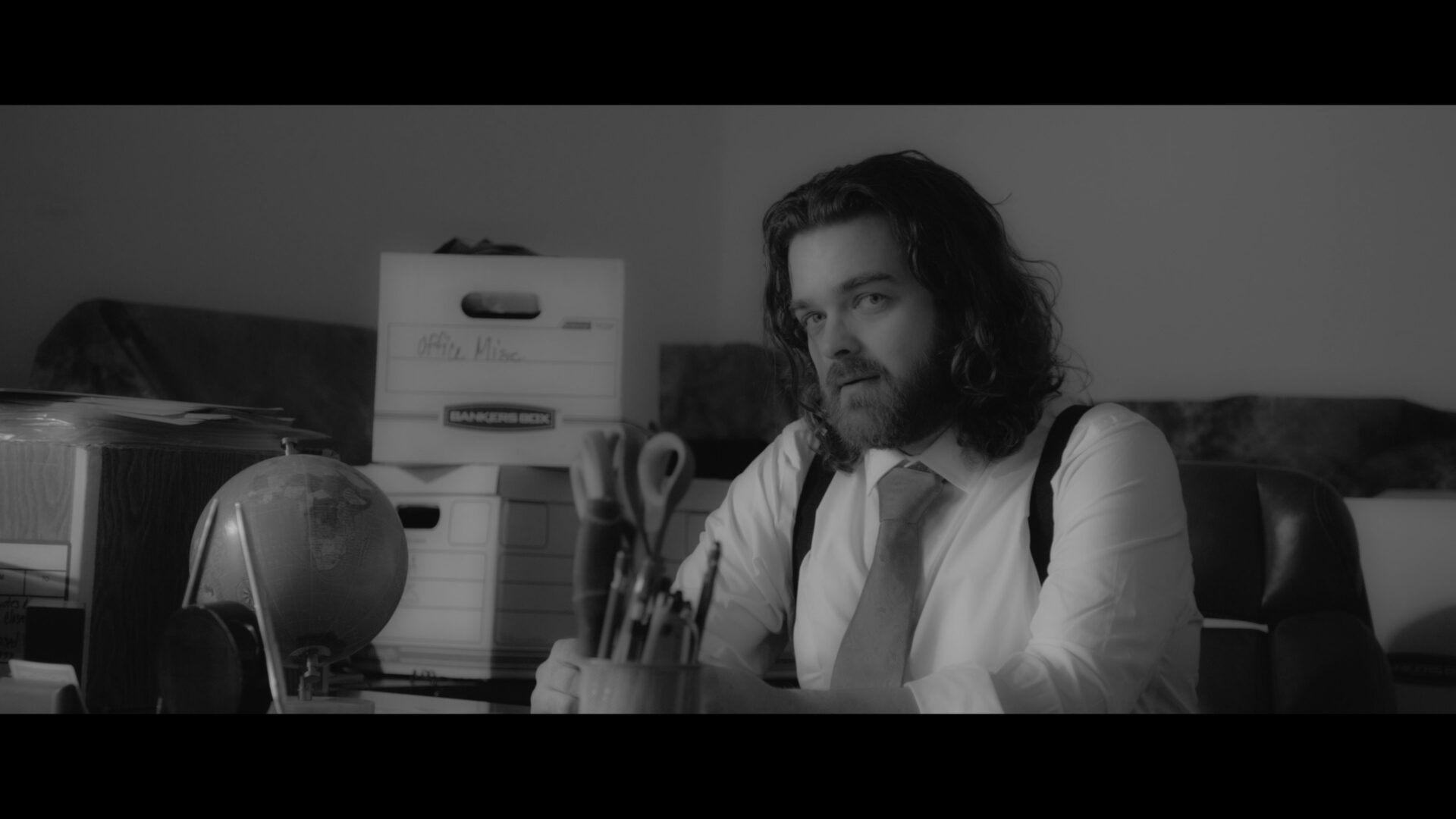
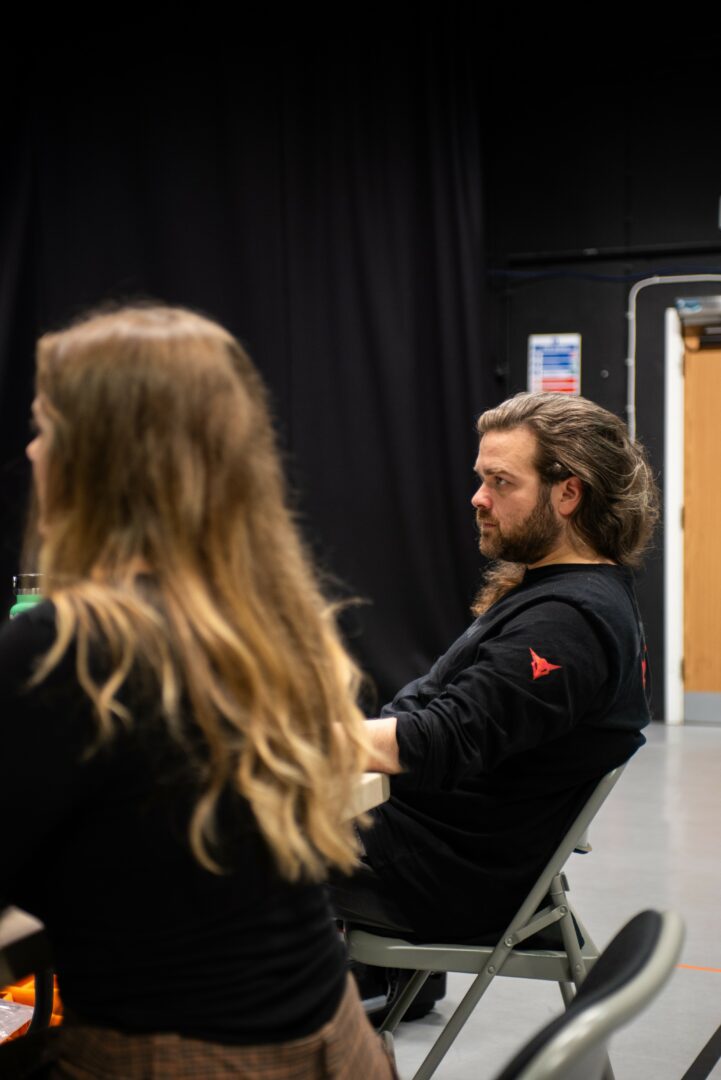
Image Credits
Underwater photo – Rose Saban
1, 2 – Nathan Principe
3, 4 – Beatrix Whilde
5 – Rose Saban
6 – Madeleine Bloxam
so if you or someone you know deserves recognition please let us know here.

